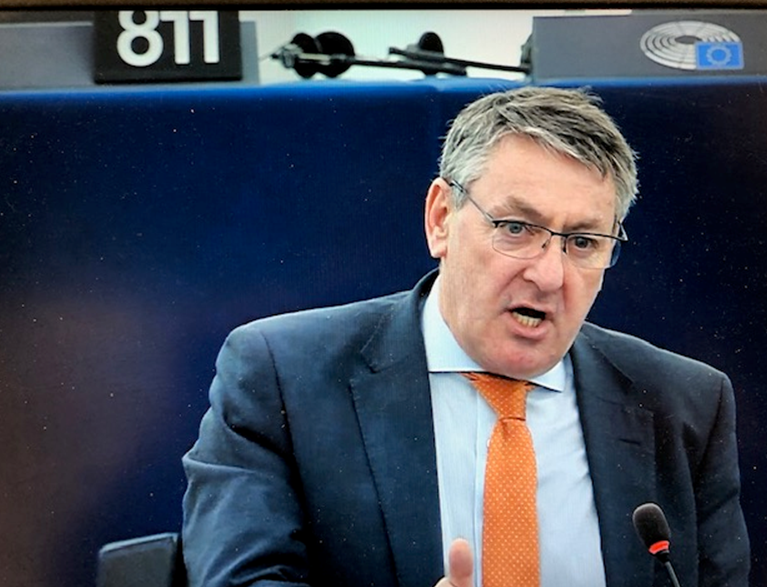Common Agricultural Policy (CAP) payments to farmers have been impacted by general inflation in Europe, the European Union (EU) Commissioner for Agriculture and Rural Development, Janusz Wojciechowski has acknowledged.
During a European Parliament debate on food price inflation the commissioner said farmers’ incomes rose last year but they did not rise to match the increase in food prices.
Food inflation is currently running at 18.3% he told the parliament.
Commissioner Wojciechowski also highlighted that when the increase in input costs was factored in, particularly in relation to energy and fertiliser, then farmers were not “fully compensated by the increase in prices that farmers received” in 2022.
Farmers and fertiliser
He told members of the European Parliament (MEPs) that the European Commission wanted to encourage farmers to be less “dependent” on fertilisers because of the current costs issue.
Commissioner Wojciechowski said that the Commission wanted to encourage farmers to “produce their own fertiliser, in the natural way”.
He also highlighted that the Commission continued to support farmers thought the latest Common Agricultural Policy (CAP) strategic plans.
“Farmers are working under very difficult circumstances, the energy price has sky rocketed, the fertilisers, the feed, all of this is increasingly expensive but we still have food security thanks to our farmers.
“We need to support them using all the instruments that we have at our disposal thanks to the CAP. Inflation is affecting the CAP which is being devalued, the expenditure on the CAP has not changed, despite inflation,” the commissioner added.
He said that the CAP budget was decided by the EU member states but “nowadays this budget might be less effective and be less of an incentive for the farmers”.
Separately, on social media, Commissioner Wojciechowski also referenced the impact of inflation on the current EU long-term budget (MFF).
During the European Parliament debate on food price inflation, Fianna Fáil MEP Billy Kelleher said that inflation was having a significant impact on farmers who are producing food.

The MEP for Ireland South asked the Commission what it was going to do to address the input costs, primarily fertiliser and other commodity costs like protein feeds for animals. He warned that this would be a “significant challenge”.
“I would like to know what efforts will be made to displace the importation of soya, maize, oil seed with crops grown in Europe under the protein strategy?” Kelleher added.
The MEP believes this would help to reduce “our dependence, reduce transport costs and make them cheaper for everyone”.
He also raised in the debate that there had not been an impact assessment of key EU programmes including Farm-to-Fork, the Biodiversity strategy or the Green Deal and questioned “if it was not time” to assess the strategies to determine if they were not “adding further to the difficulties regarding price inflation and food inflation”.
Commissioner Wojciechowski said there was no requirement for an impact analysis on the Farm-to-Fork strategy but the Commission was looking at the individual elements of the strategy.
He said the strategy supported the “shortening” of the path from farm to fork which would in turn impact on transport costs and was an important consideration in relation to food prices.
The commissioner said “a short supply chain” would contribute to a reduction in food prices.
Following the debate, the MEP for Ireland South described the commissioner’s answers as “less than satisfactory”.
“I am left wondering if the European Commission actually has a strategy to support farmers and ultimately consumers in Ireland and the other 26 member states.
“Without a proper strategy, with a view to lowering input costs, ending our dependence on imports and understanding how policies might affect future food costs, I am deeply worried about food inflation over the next year or two,” Kelleher added.
